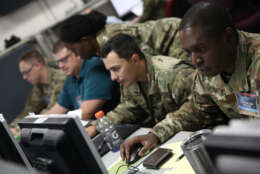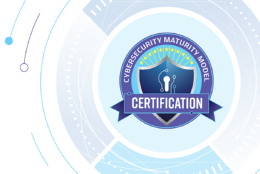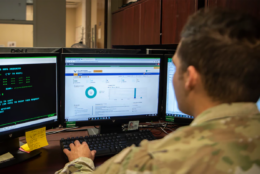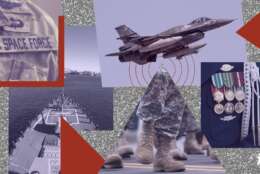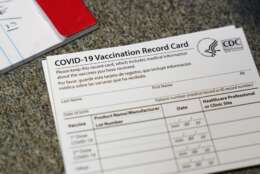Defense
-
Multibillion dollar award goes to Homesafe Alliance, LLC, a venture led by KBR. The company initially lost the contract last year, but lodged a successful bid protest.
November 04, 2021 -
Maj. Gen. Matthew Easley, director, cybersecurity and chief information security officer, and the Army’s chief information officer, said it is key cybersecurity professionals use five functions.
November 04, 2021 -
The Pentagon is revising its Cybersecurity Maturity Model Certification program by massively reducing the amount of companies that would require third-party assessments and providing new waiver processes for select requirements.
November 04, 2021 -
Lt. Gen. Michael Groen, the director of the Joint Artificial Intelligence Center for the Department of Defense, said the military is not in danger of falling behind to China when it comes to taking advantage of AI capabilities.
November 04, 2021 -
DoD's use of other transaction agreements has expanded ten-fold in the past five years, but even inside the acquisition workforce, there are still persistent myths about what OTAs can and can't do.
November 04, 2021 -
Only 800 active duty airmen and guardians, out of an Air and Space Force of about 326,000, said they will not get the COVID-19 vaccination, and will face consequences and possible termination.
November 03, 2021 -
Retired Marine Corps Lt. Gen. Mark Faulkner, new president of the Institute for Defense and Business, joined Federal Drive with Tom Temin for more discussion.
November 03, 2021 -
The Defense Department has been steadily increasing the number of contracting dollars it directs to small business.
November 03, 2021 -
The Air Force's Office of Financial Management and Comptroller is making lots of moves to improve its IT, including developing a new acquisition strategy, hiring a CDO, implementing automation and addressing ICAM issues.
November 02, 2021 -
DoD adds new protections from minor infractions for military sexual assault victims reporting crimes
Victims of sexual assault in the military now have more options to protect themselves from minor infractions if they decide to report a crime to their command.
November 02, 2021 -
The Defense Information Systems Agency annual forecast to industry day highlighted several upcoming contract opportunities, but more importantly laid out the path the agency is heading for the next year.
November 02, 2021 -
Who should be exempted by their employers from a vaccine mandate? In the case of active duty military members, it's not so clear.
November 02, 2021 -
The CDO office is less than a year old, but DISA officials want to put data at the center of everything the agency does going forward.
November 02, 2021 -
With deadlines inching closer, employees and contractors get more details on federal vaccine mandate
The Biden administration in recent days has offered up more details on how agencies might handle religious exception requests from federal employees. Contractors should make a "good faith" effort to comply with the federal vaccine mandate, according to recent guidance.
November 01, 2021 -
The Defense Department's policy shop will hold the new position.
November 01, 2021


